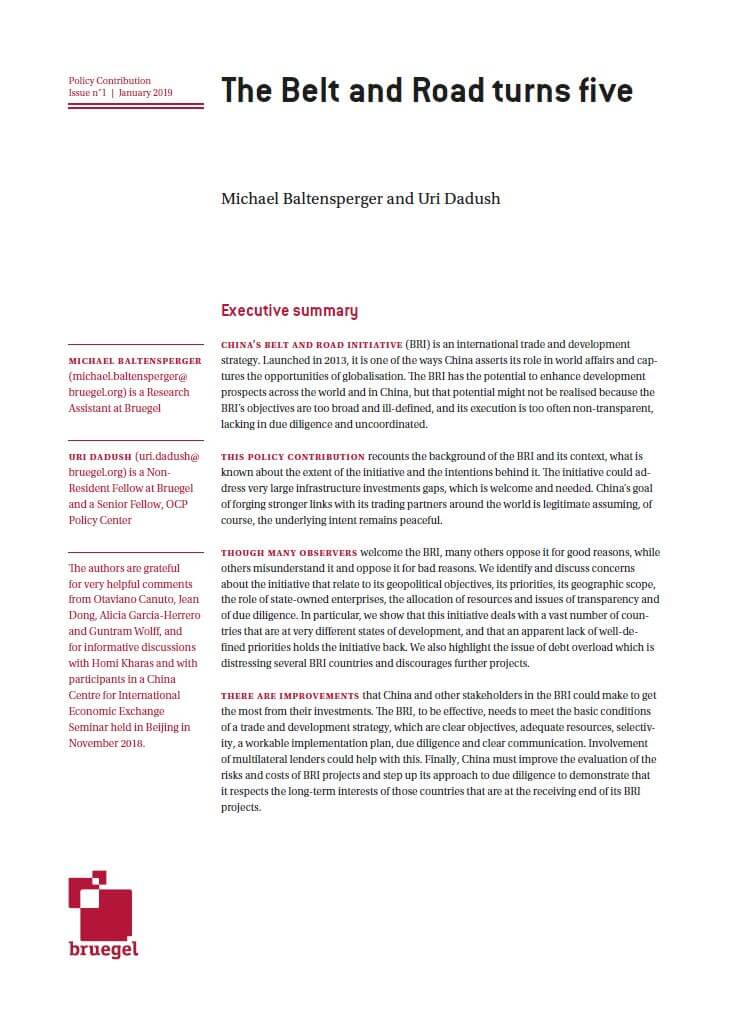Policy Contribution
The Belt and Road turns five
Five years after its launch, Michael Baltensperger and Uri Dadush reflect on China’s Belt and Road Initiative. The plan to revive ancient trade routes has the potential to enhance development prospects across the world and in China, but that potential might not be realised because the BRI’s objectives are too broad and ill-defined, and its execution is too often non-transparent, lacking in due diligence and uncoordinated.
China’s Belt and Road Initiative (BRI) is an international trade and development strategy. Launched in 2013, it is one of the ways China asserts its role in world affairs and captures the opportunities of globalisation. The BRI has the potential to enhance development prospects across the world and in China, but that potential might not be realised because the BRI’s objectives are too broad and ill-defined, and its execution is too often non-transparent, lacking in due diligence and uncoordinated.
This Policy Contribution recounts the background of the BRI and its context, what is known about the extent of the initiative and the intentions behind it. The initiative could address very large infrastructure investments gaps, which is welcome and needed. China’s goal of forging stronger links with its trading partners around the world is legitimate assuming, of course, the underlying intent remains peaceful.
Though many observers welcome the BRI, many others oppose it for good reasons, while others misunderstand it and oppose it for bad reasons. We identify and discuss concerns about the initiative that relate to its geopolitical objectives, its priorities, its geographic scope, the role of state-owned enterprises, the allocation of resources and issues of transparency and of due diligence. In particular, we show that this initiative deals with a vast number of countries that are at very different states of development, and that an apparent lack of well-defined priorities holds the initiative back. We also highlight the issue of debt overload which is distressing several BRI countries and discourages further projects.
There are improvements that China and other stakeholders in the BRI could make to get the most from their investments. The BRI, to be effective, needs to meet the basic conditions of a trade and development strategy, which are clear objectives, adequate resources, selectivity, a workable implementation plan, due diligence and clear communication. Involvement of multilateral lenders could help with this. Finally, China must improve the evaluation of the risks and costs of BRI projects and step up its approach to due diligence to demonstrate that it respects the long-term interests of those countries that are at the receiving end of its BRI projects.





